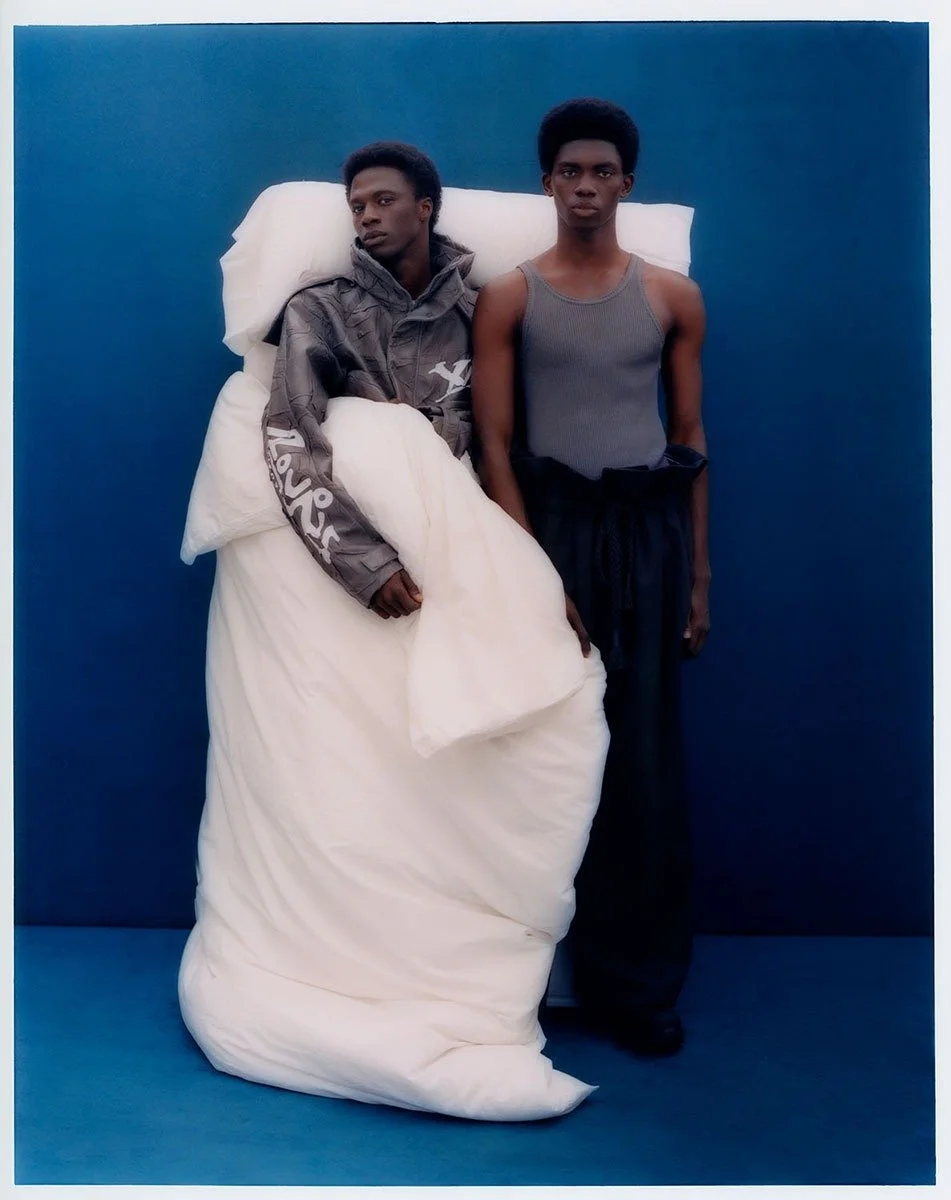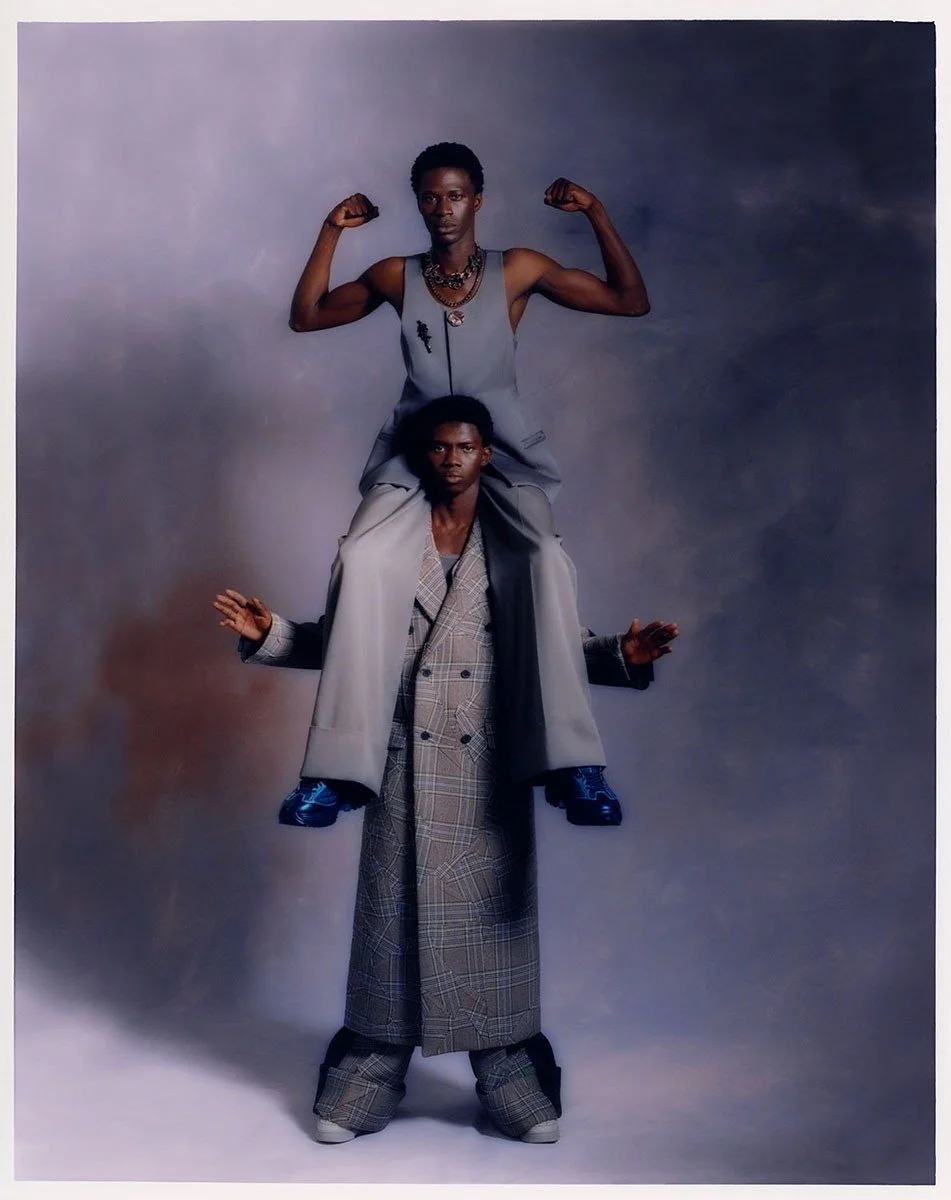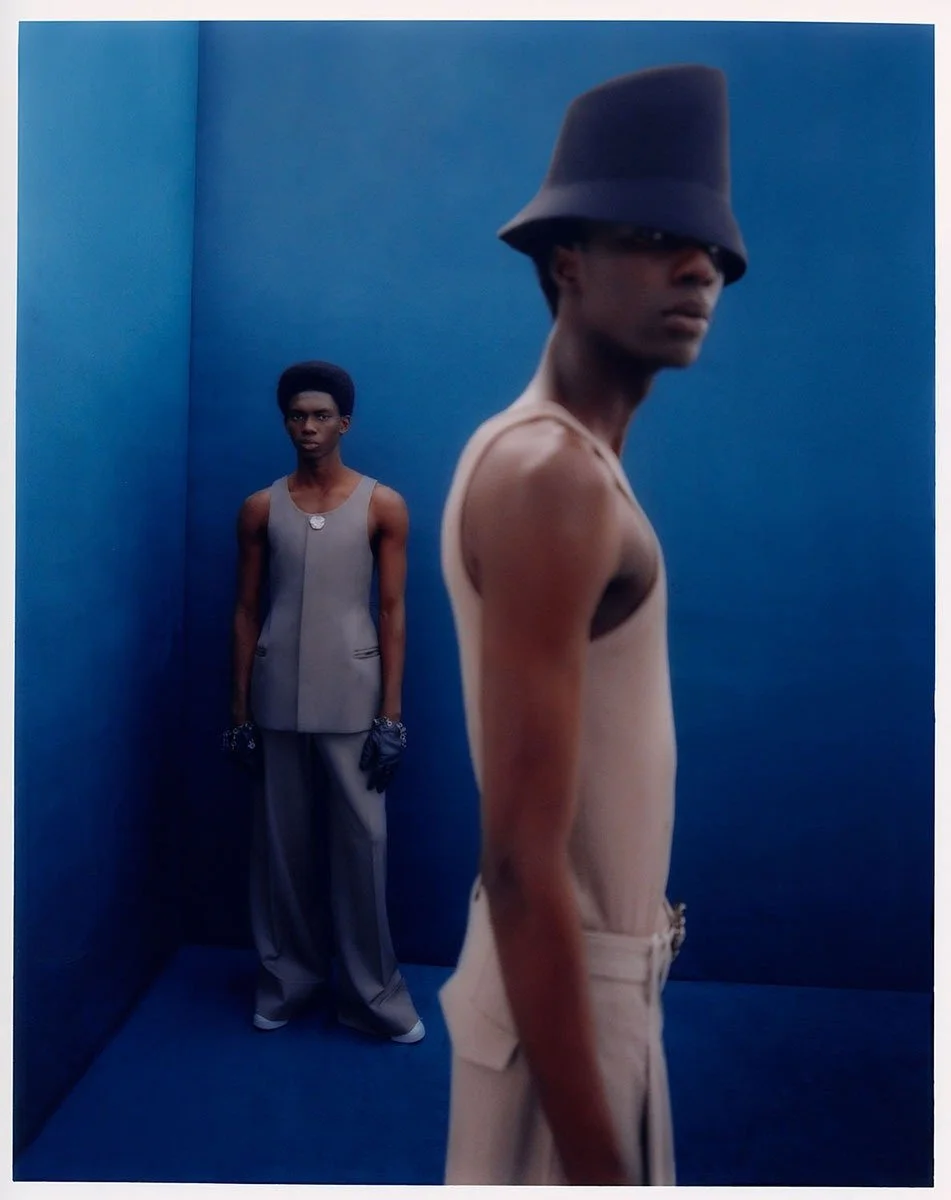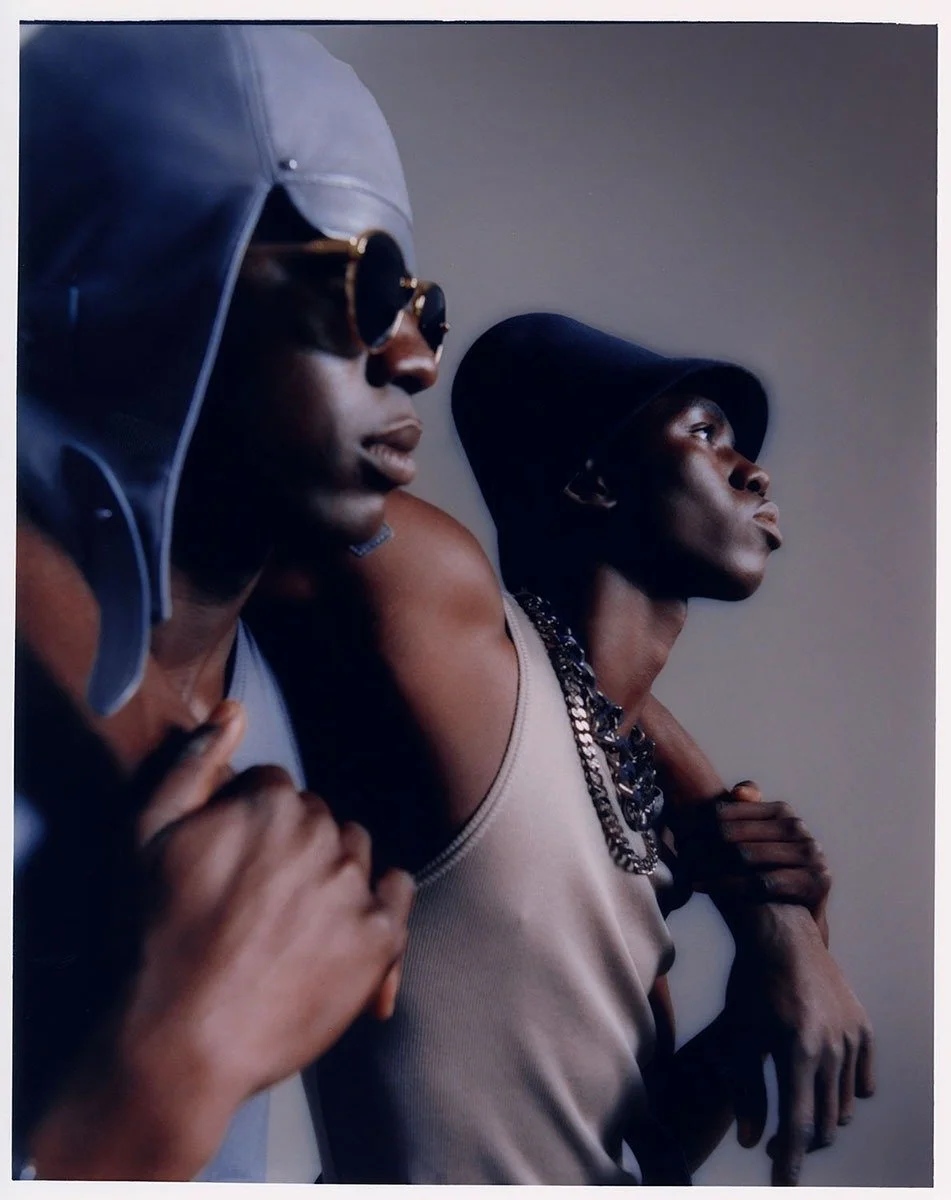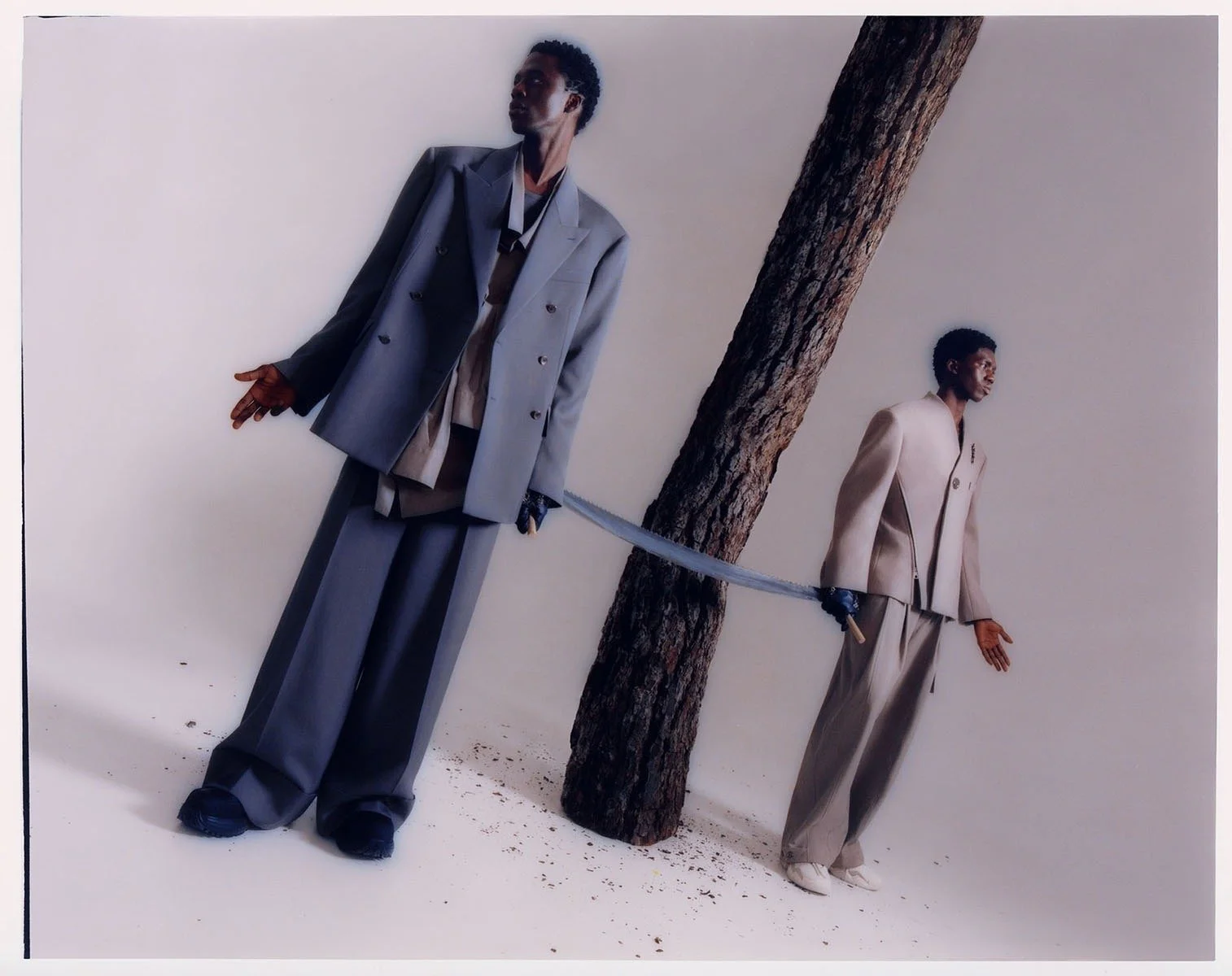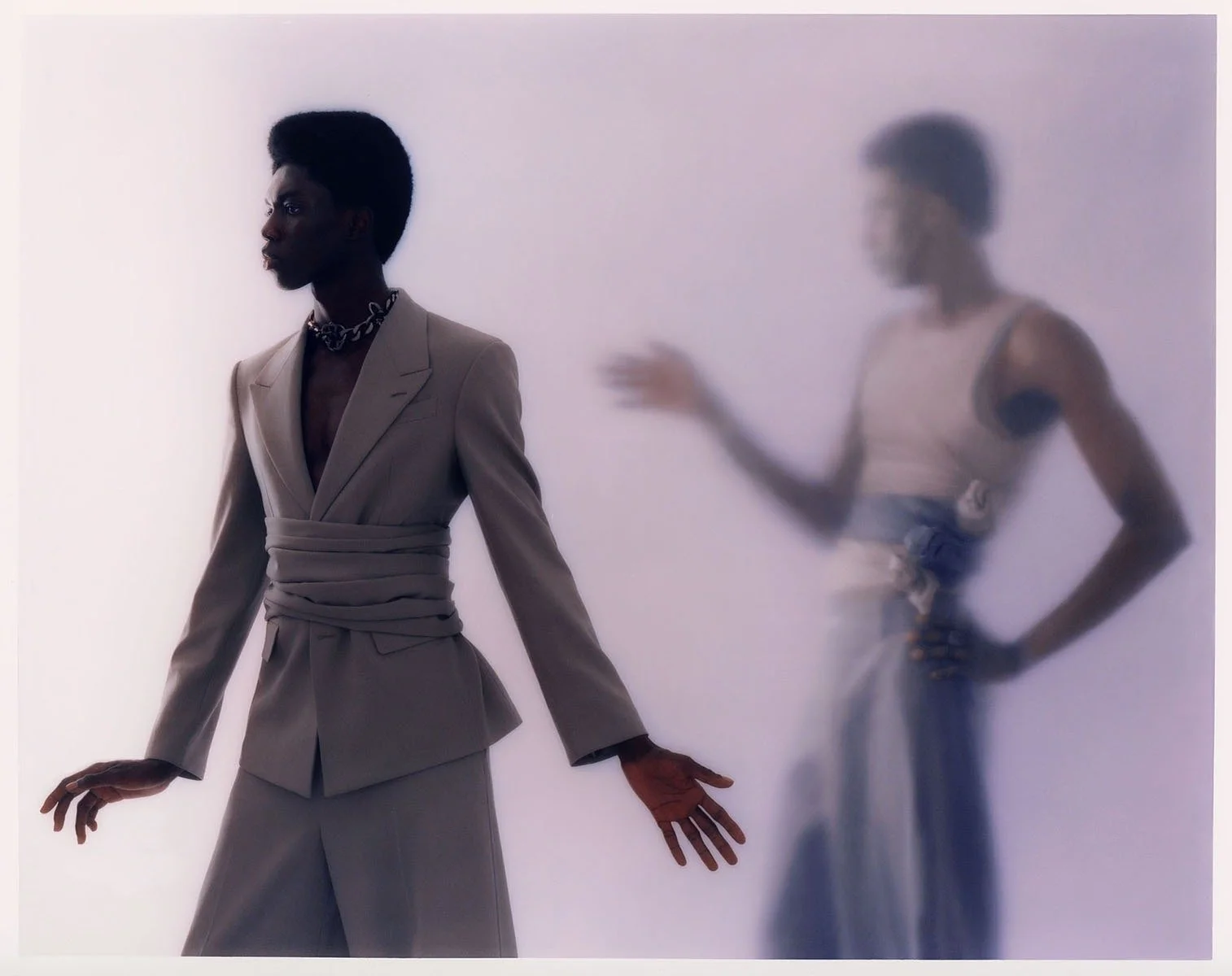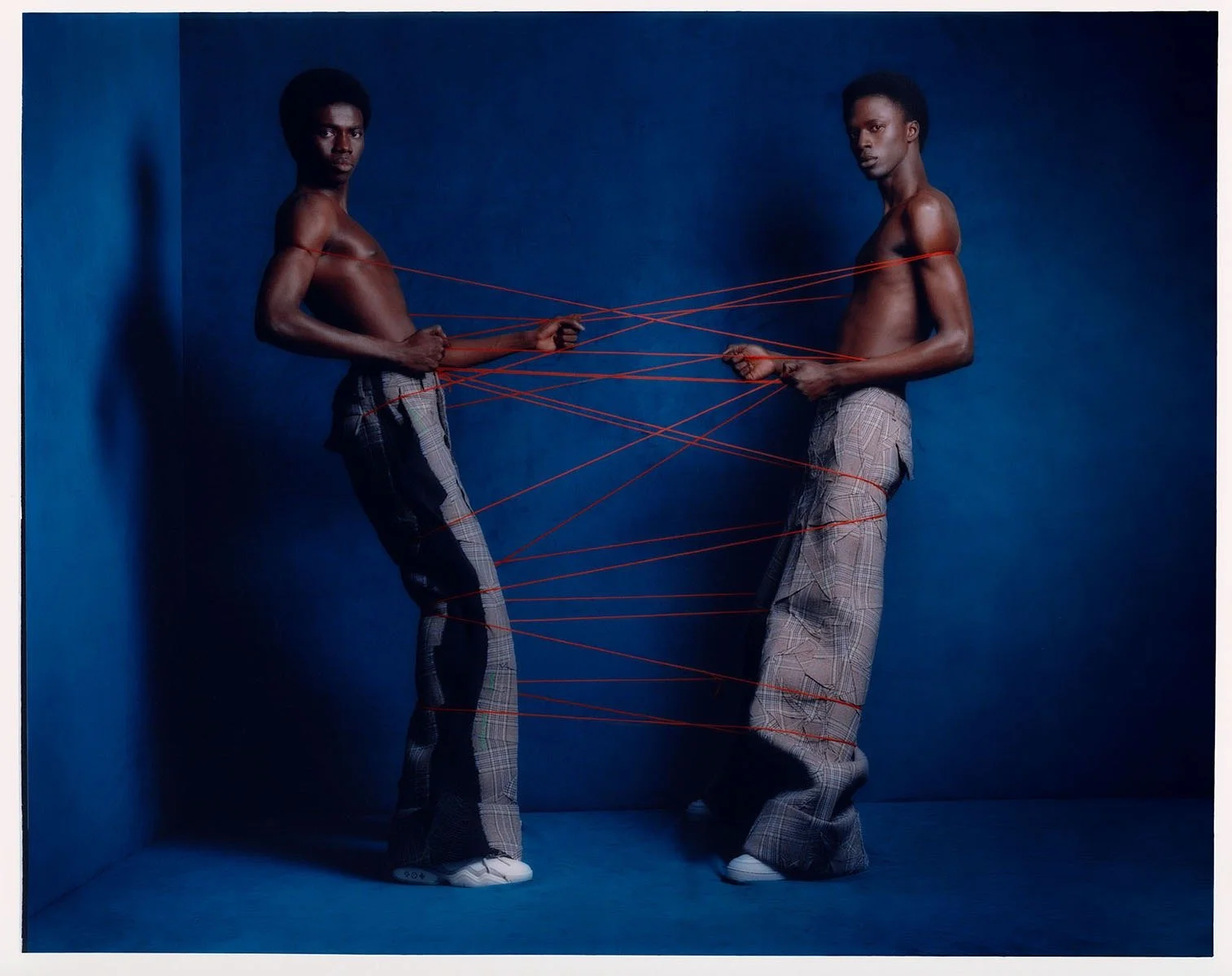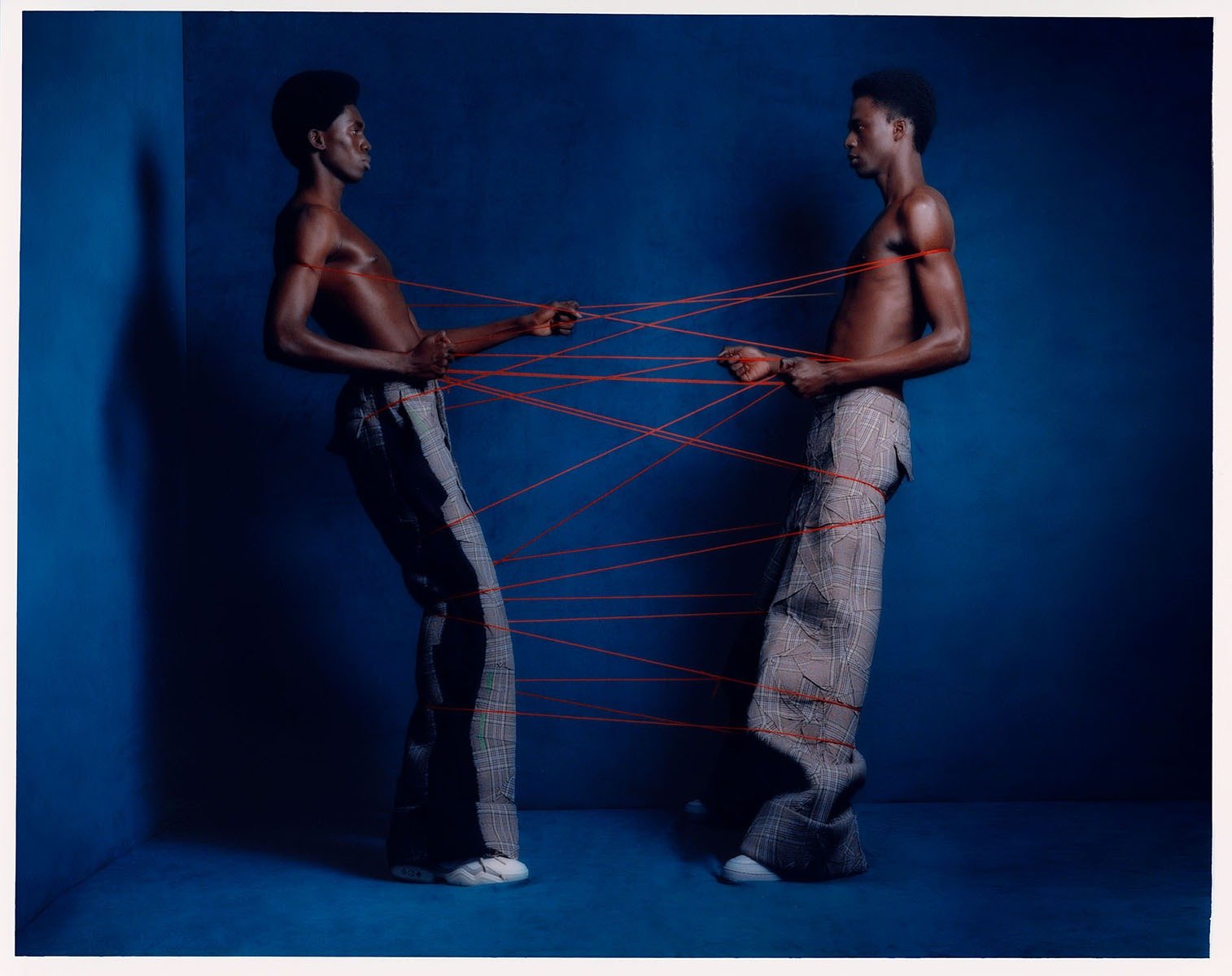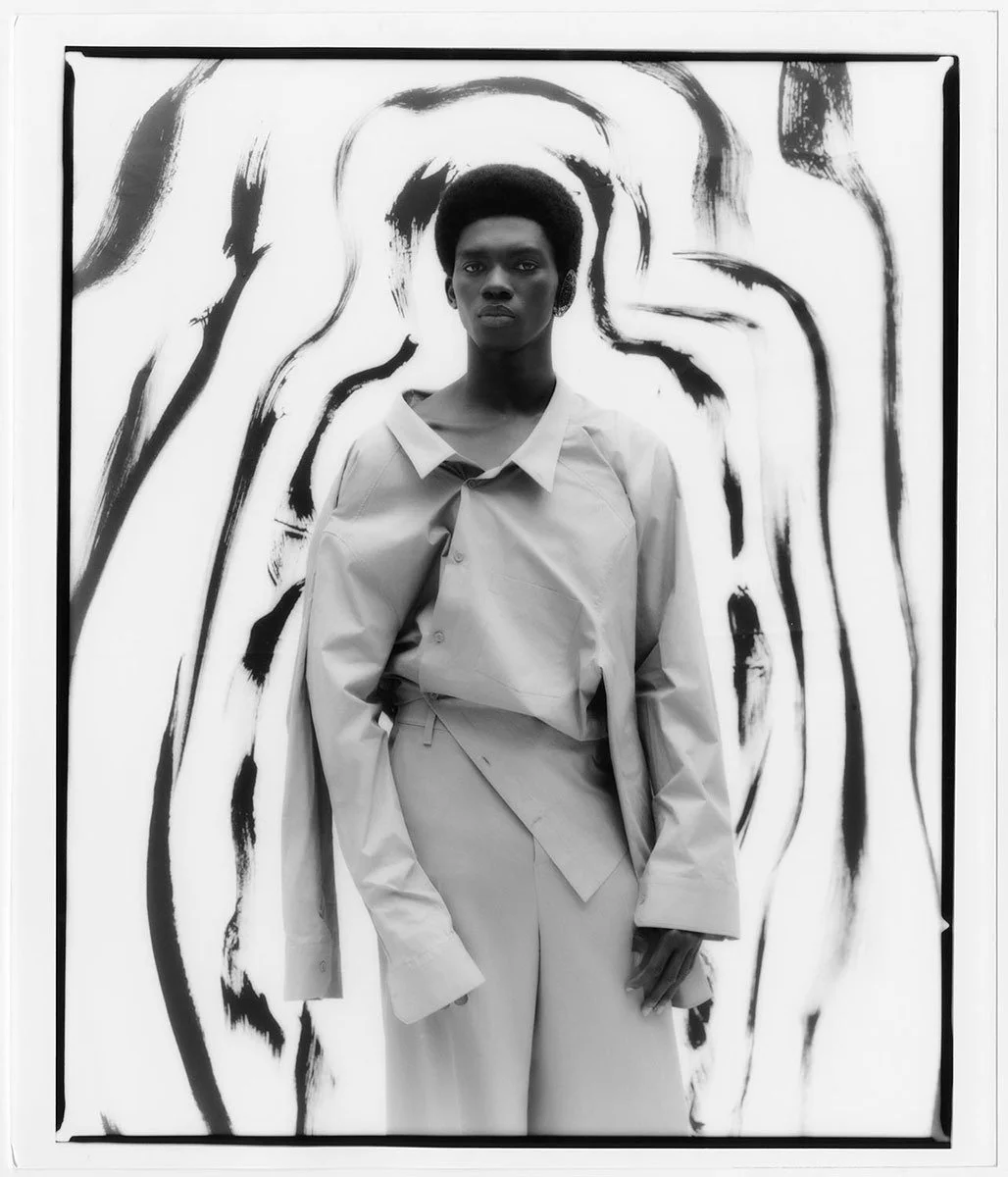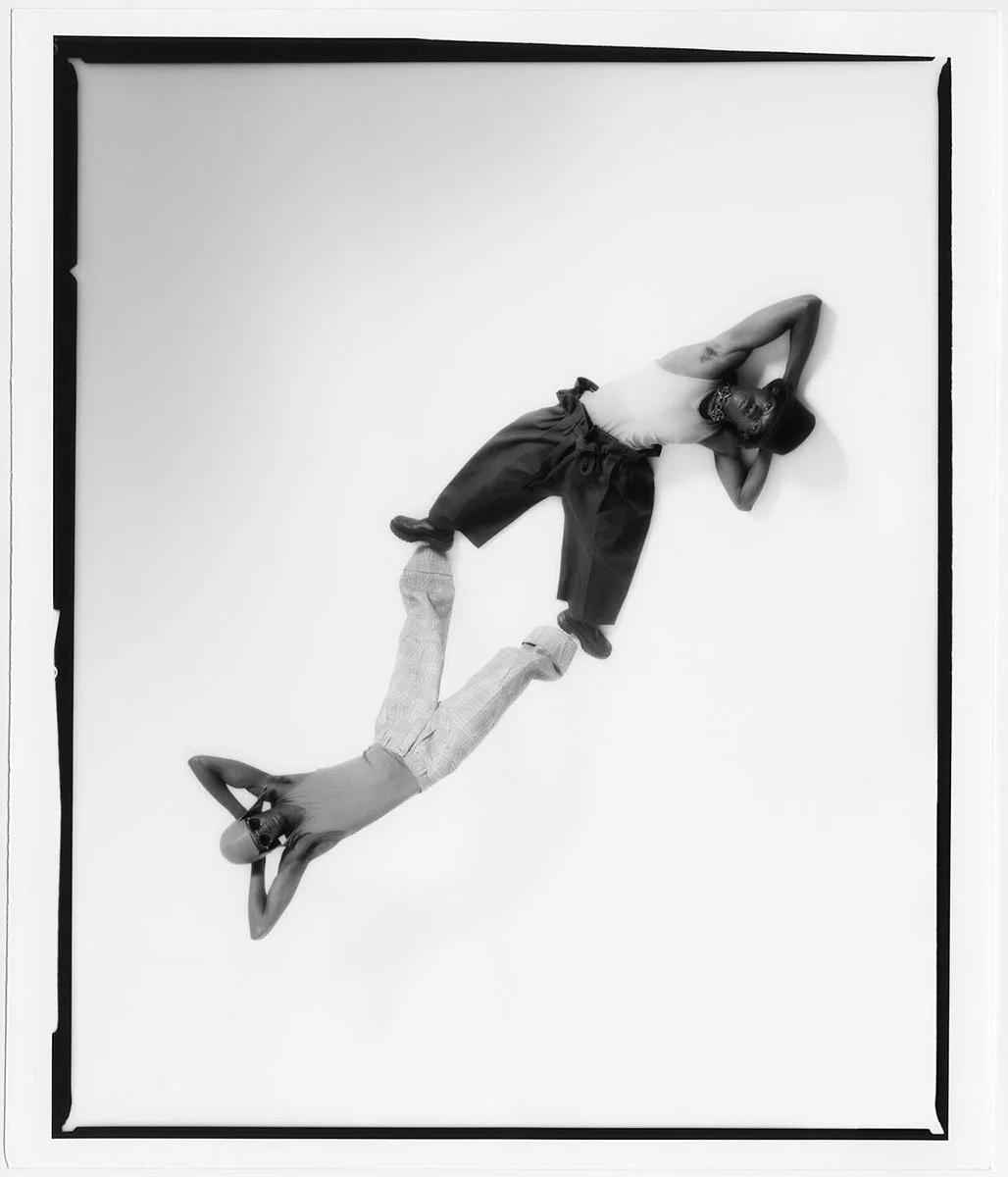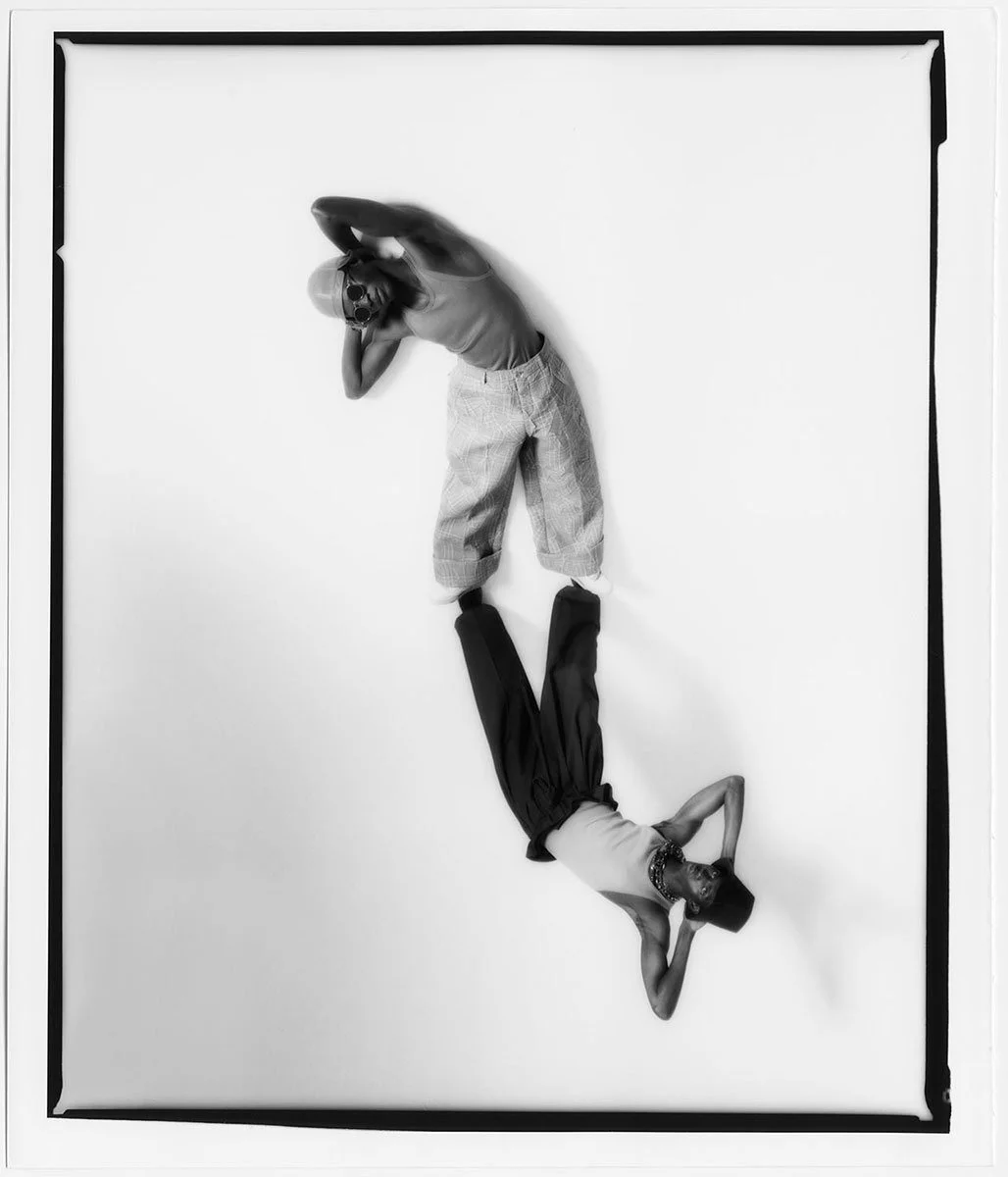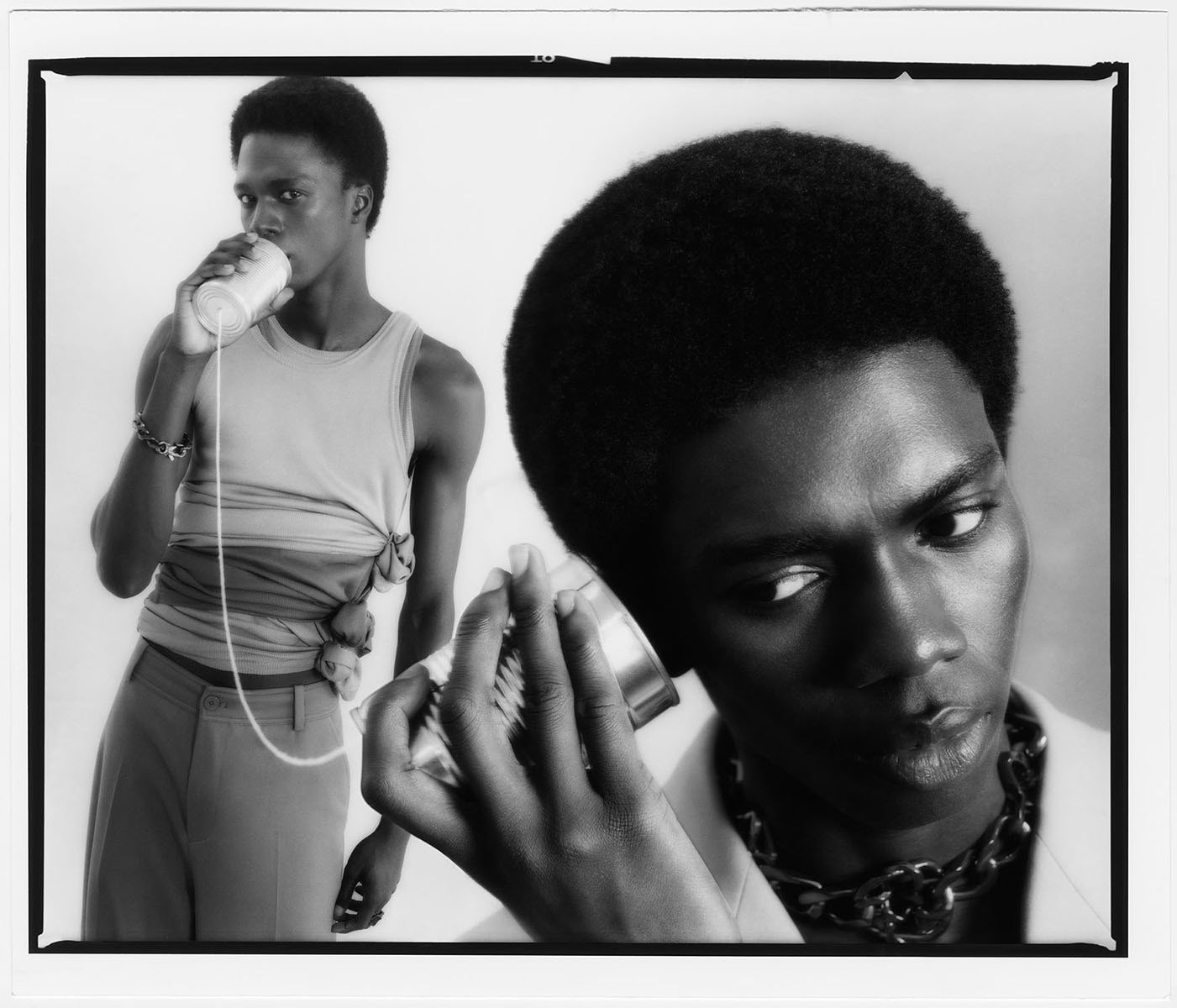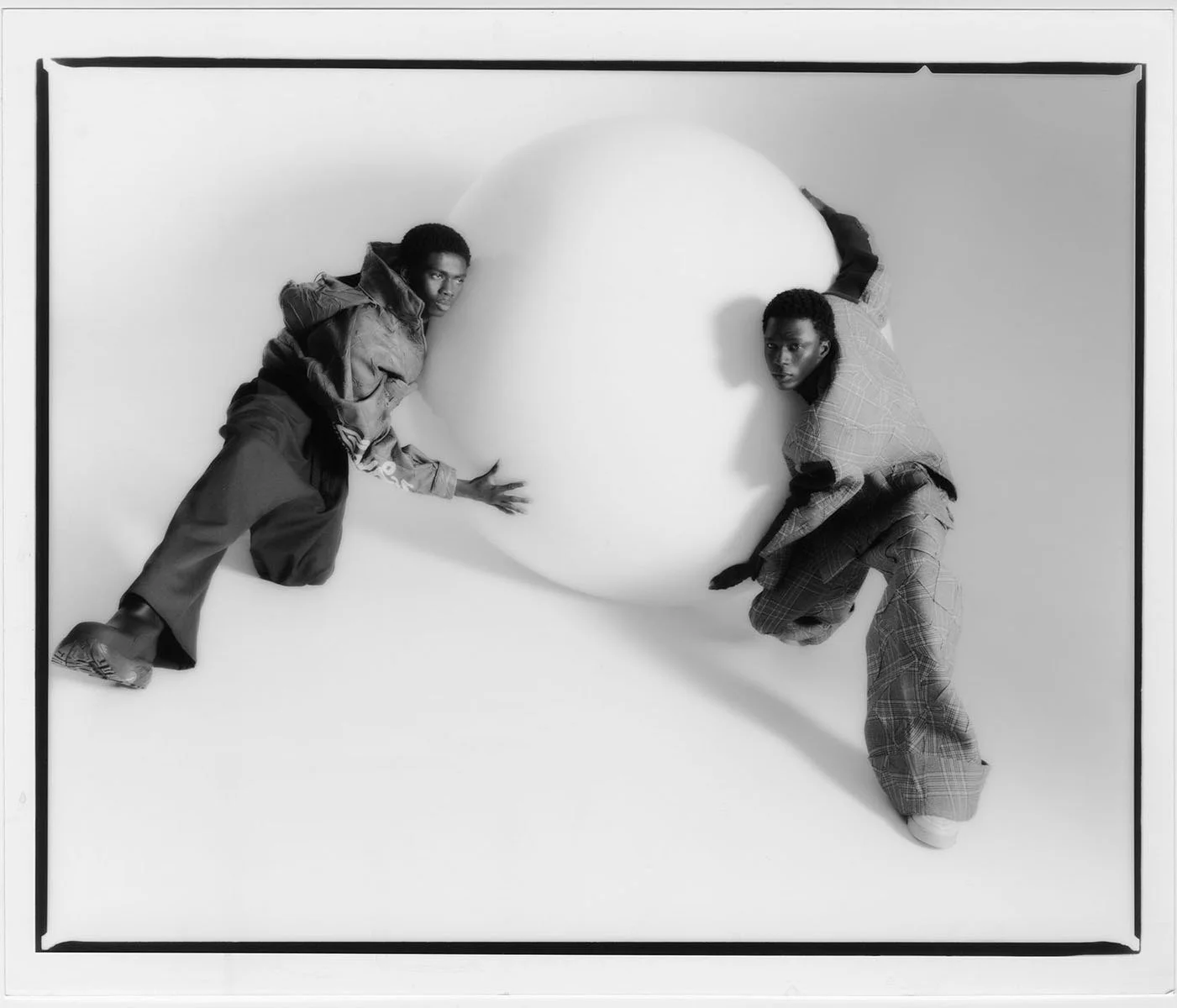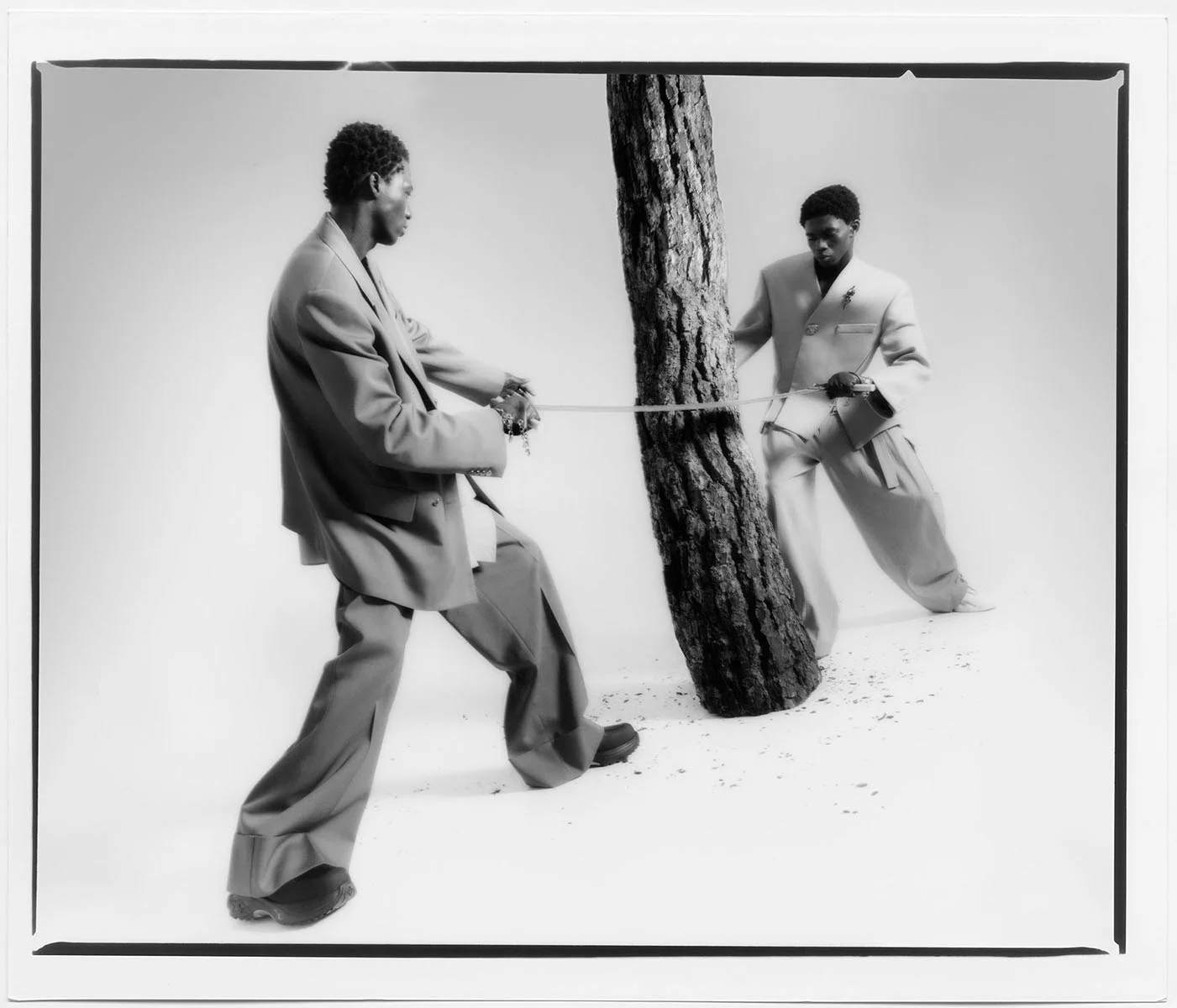CHERIF and OTTAWA wear LOUIS VUITTON @louisvuitton
Interviewer & Writer
For the RESONANCE issue, introducing CHERIF DOUAMBA & OTTAWA KWAMI.
In an interview with Numero NL, CHERIF DOUAMBA and OTTAWA KWAMI tell the story of their ascension into the world of high fashion. The two standout African models have graced the global stage, riding a meteoric wave of success sparked by their discovery on social media.
photography JAVIER CASTÁN @javiercastan
styling GABRIELLA NORBERG @gabriella.norberg
hair FERNANDO TORRENT @torrentfernando @anotherartistsagency
makeup VICENT GUIJARRO @vicentguijarro
set design MARIA ONA @mariaona11
photography assistance NANO HAZ
styling assistance IRENE CARO ALONSO @caroirene_
set designer assistance ANA GARCÍA
models CHERIF DOUAMBA @cherif_douamba @nestmodelmanagement
OTTAWA KWAMI @ottawakwami @supamodelmanagement
interview MASSAER NDIAYE @madsear
casting director TIMOTEJ LETONJA @timiletonja
cover design ARTHUR ROELOFFZEN @arthurroeloffzen
#Cover #NumeroNetherlands #resonance #LouisVuitton #cherifdouamba #ottawakwami
In an enthralling interview with Numero, Ottawa Kwami and Chérif Douamba tell the captivating story of their ascension into the world of high fashion. These two standout African models graced the global stage, riding a meteoric wave of success sparked by their discovery on social media. Their stories, woven with threads of ambition and determination, trace their journey from African origins to European runways. They openly shared experiences about the demanding visa process that granted them access to European catwalks. Alongside the challenges faced as black male models, they highlighted the prevailing lack of knowledge and recognition for the modeling industry in Africa, marred by unwarranted stigmas.
Initially met with parental hesitation regarding modeling as a legitimate career, Ottawa and Chérif's families have, over time, embraced their chosen paths, celebrating their achievements. The bond shared by these two transcends the professional realm, evolving into a deep-rooted friendship that extends beyond the glamour of the fashion world. Together, they navigated the intricate world of castings and bookings, putting an emphasis on the potency of collaboration and support over cutthroat competition. Their narratives bear witness to moments of triumph, including their involvement in Virgil Abloh's historic initial Louis Vuitton show, which left them feeling integral to a movement for diversity. However, they candidly acknowledge how black models still confront limitations, often relying on connections and a robust support system to ascend the ladder of success.
In a bold and visionary stride, Ottawa and Chérif unveiled their brainchild, SIOH, a creative collective that stands as a resounding call for change. SIOH is more than just a platform; it's a beacon of hope for African creatives seeking to soar. Their vision revolves around empowering the next generation of models and reshaping perceptions of modeling as a prestigious career path in Africa. The conversation also delved into the critical matter of improving working conditions for models, particularly in safeguarding young girls from exploitation. Ottawa and Chérif share a unified passion for creating sustainable opportunities within Africa, envisioning a landscape where brands directly connect with local talent to establish the African continent as a thriving hub in the fashion industry.
As Ottawa and Chérif unveiled their incredible journeys, the artistry of modeling intertwined with their unwavering commitment to change, their stories transcending career narratives to become a potent testament to courage and the relentless pursuit of dreams.
Massaër Ndiaye - Can you share your initial feelings when embarking on this journey?
Ottawa Kwami - Initially, I was a computer engineering student with no inkling that modeling could be a career. I was only 17 when I got discovered on Instagram while still living in Accra, Ghana, and it was a bit challenging to explain my newfound ambition to my family, but my mother had a clothing business and I was inspired by my love for creativity for me to take the plunge.
Chérif Douamba - My journey was quite different. I studied law and business management in Abidjan, Cote d’Ivoire to satisfy my father's wishes, and modeling wasn't in my plans. It took some time to consider it seriously, but I eventually decided to give it a shot after completing my studies. I’m 28 today and don’t regret it one bit.
MN - Ottawa, your mother had some reservations at first, suspecting something shady. How did you navigate that conversation?
OK - It was quite a scene. My mom was initially concerned when she learned I was flying to Europe for modeling, fearing it might be a scam or something worse, like human trafficking. It took a while for her to come around, and my agent even had to meet with her personally to address her concerns. It was a challenging period, but it eventually worked out.
MN - Chérif, your father's initial resistance led to some intense discussions. How did he ultimately come to accept your choice?
CD - My father was initially furious about my decision to become a model. He was a proponent of traditional career paths and believed modeling was a dead-end choice. He even asked me to leave the house. It took a few years, but as he saw my successful career unfold, his perspective gradually shifted. Now, he advises me to stay true to myself and not let success change me.
MN - Both of you hail from large families. How did your siblings react to your modeling careers and the geographical shift from Africa to Europe?
OK - I'm the oldest in my family, and my siblings were quite young when I left for Europe. Our family life was very religion and education-focused, so my departure was a significant change for them. But as they witnessed my success, they became increasingly excited and proud of my accomplishments.
CD - My family dynamic is a bit different. I lost my mother at a young age, and my father remarried. My siblings and I have different mothers, but my younger brother and older sister have been very supportive. Distance from your family can often strengthen sibling relationships, even if there's a bit of bickering.
MN - Ottawa, your father's role as a pastor undoubtedly had an impact on your career choice. How did his influence shape your journey in the fashion industry?
OK - My father's role as a pastor significantly shaped our family life, emphasizing education over all else. I come from a religious background where family life was centered around strict schedules and education, with faith playing a major role. When I chose modeling, it was considered a deviation from the norm. The world of fashion wasn't considered a valid career choice. His advice was simple yet meaningful: make sure not to bring disgrace to the family. Although he didn't fully understand the fashion world, his guidance remained valuable.
MN - Could you tell us more about how you and Ottawa first connected in Ghana?
CD - Ottawa and I initially connected online through a group chat for models, and when he needed to return to Ghana for his visa, we met in person and instantly formed a lasting friendship.
MN - Did you intentionally choose Ghana as a starting point for your modeling careers, or did fate play a role in this decision?
CD - Ghana, Nigeria, and South Africa are crucial fashion destinations in Africa. Ghana was a sensible choice for us, as our agency provided valuable support with visa applications. Those countries offer more accessible modeling opportunities than many others in Africa.
MN - Tell us about the visa application process and how agencies assist with it.
OK - Agencies typically provide the necessary documentation for visa applications, but the expenses and efforts involved in obtaining visas often fall on the models themselves. In Paris, our agency went above and beyond by providing extensive assistance with visa applications. They had an expert who helped us gather the required paperwork, streamlining the process. Unfortunately, it’s not always like that. There is a glaring lack of education when it comes to teaching the young models coming from
Africa how this business works, that’s why we both are always giving advice to younger models on social media.
MN - You mentioned that your entry into the industry lacked substantial knowledge. Could you describe your initial experiences and how you navigated this new world?
OK - In the beginning, I had no connections or prior experience in the fashion industry, which made it a challenge, especially as a young African model in Europe. I often found myself lost in unfamiliar places, like trying to decipher the Paris metro system. However, having a friend like one of our agents, recognize me and guide me was a lifeline. I've learned the importance of having someone who understands the industry and can provide invaluable support on a personal level.
MN - It's evident that a support system and friendly guidance can make a world of difference when navigating this industry. Chérif, can you share your early experiences and how you adapted to the fast-paced world of fashion?
CD - When I arrived in Paris, I was fortunate to have a friend who helped me settle in. He accompanied me to castings and offered advice on maneuvering the city. However, it was also his encouragement to assert myself and not be shy that made a significant difference. He taught me that in this industry, you must advocate for yourself. Friends can be a great source of support, and our relationships were built on inspiration and mutual assistance rather than competition.
MN - That's an excellent perspective to have. Collaboration and support among peers seem to be essential for success. Now, Ottawa, you highlighted the challenges faced by African models in the industry. Can you elaborate on the specific obstacles you've encountered and how you've overcome them?
OK - African models often confront difficulties in the fashion industry, where they may be pigeonholed into specific roles or excluded from certain opportunities due to stereotypes and ignorance. There have been instances where casting directors expressed hesitations about placing a black model in particular outfits. It's frustrating, but as African models, we've learned to persevere, remain passionate, and stay consistent. We might encounter more rejections, but we persist. We've also found that unity among African models is powerful; it's not about competition but about uplifting each other.
MN - It's clear that confronting adversity with unity is a commendable approach. Chérif, you mentioned the sense of collaboration over competition among African models. How does this camaraderie translate into positive change in the fashion world
OK - The fashion industry can be tough for African models. Many times, we're pigeonholed into certain roles or not considered for certain jobs. In some instances, casting directors would say they couldn't put a black guy in a particular outfit. It's frustrating because it's based on stereotypes and ignorance. However, we've learned to persevere, be passionate, and remain consistent. We might face more rejections, but we keep going. We also discovered that African models tend to help each other, and that sense of unity is powerful. It's not about competition; it's about lifting each other up.
MN - You mentioned that collaboration is more significant than competition among African models. How does that camaraderie between African models translate into positive change in the fashion world?
CD - Our unity as African models has a profound impact on the industry. When we support each other, we collectively influence the industry to recognize our presence and value. It's not about competing with each other for a limited number of opportunities; it's about expanding those opportunities and bringing more people in. Unity is strength, and the more of us who enter this industry, the more doors we can open for others.
MN - That's a powerful message. I'm interested in hearing about your future plans for SIOH. What can we expect from your creative platform in the coming years?
OK - We have ambitious plans for SIOH. We want to collaborate more with brands and promote African talent, creatives, and causes. Additionally, we aim to organize events that foster connections, establish mentorship programs for aspiring models, and create content that addresses important issues in the fashion and modeling world.
CD - We're also exploring various creative projects beyond modeling, such as photography, filmmaking, and storytelling. Our goal is to share authentic African stories and perspectives. We want to make a lasting impact, not just within the fashion industry but across different creative domains.
MN - Your dedication to empowering others and expanding your creative endeavors is truly inspiring. Finally, what advice would you give to aspiring models and creatives, especially those from underrepresented backgrounds or African countries?
OK - My advice is simple: believe in yourself, never give up, and surround yourself with supportive people who genuinely care about your success. Rejections may be part of the journey, but they can be motivating. Keep pushing forward, learn, and grow.
CD - I'd add that education is essential. Learn about the industry, your rights, and contracts. Find mentors or role models, ask questions, and never be afraid to express your unique perspective. Your background and heritage can be a valuable asset, so embrace them.
MN - You guys are trying to break barriers and empower African talent. Who's the biggest African or black model right now, and what opportunities are they missing?
OK - We need more support for African models, not just recruitment. People need to be prepared mentally and emotionally for the industry. We want to promote African talent and provide opportunities for success in Africa, not just Europe.
CD - We need to break the stereotypes around models and ensure they get fair treatment and opportunities. This is a people business, and networking is crucial for success. Some models come from backgrounds where families expect financial support. It's a lot of pressure.
OK - Many people from Africa believe that Europe offers quick riches, but the reality is quite different. There's a huge transition when you arrive in Europe, and you have to adapt to being self-reliant.
CD - It's a different life, you're on your own, and you need to make it. European life can be tough, and the struggle is real. In many African countries, making it as a model means you become your parents' retirement plan.
OK - The pressure is real, and it's different here in Europe. Some models, particularly young girls, face challenges and get dropped after a season in Europe, leaving them in a tough situation back home.
MN - The modeling industry can be ruthless, especially with recruitment contracts in Africa.
OK - It's essential for the industry to support young models mentally and financially. We're ready to help and support models in any way we can, not just creatively.

